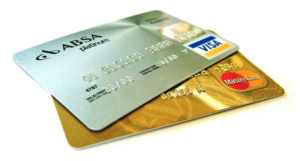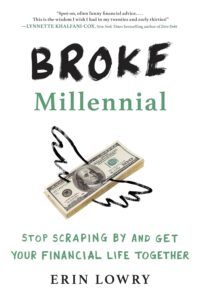How to Begin Building Your Credit

“This post may contain affiliate links. If you use these links to buy something we may earn a commission but you may gain some knowledge.”
Building your Credit
Building and maintaining your credit is one of the most important parts of your financial life. The three-digit number that makes up your credit score helps lenders determine whether or not lenders can trust you to pay back your financial obligations.
This number helps determine whether or not you will be able to buy things like a car, house, or get a credit card to help pay for emergency expenses. Unfortunately, like most things, it is much easier to destroy your credit than to build it back up again.
Just a handful of late or missed payments can knock your score down to levels that will take a lot of hard work the build back up. It is not impossible to build your credit back, but it does take a commitment to the process and an understanding of what your credit score is composed of won’t hurt.
Whenever you go to open up a line of credit, the lender is going to want to determine your ability to repay that loan. Weather this is a line of credit, personal or business loan, or even a credit card, they are going to ask for proof of personal income and review your credit history to determine your eligibility for the loan.
What if you have recently graduated from high school or college or maybe you have had some credit issues in the past. Providing this information will be difficult because of the fact that you don’t have a strong credit history or don’t have a strong income history to prove that you can repay the loan.
You may be wondering to yourself, how do I begin building up my credit?
Get a Credit Card
There are many ways you can go about getting a credit card to start building your credit. If you feel as though you are a responsible person and have some self-control, starting this process early is the best. The last thing you want to do is get a credit card and start spending like crazy. There are certain do’s and don’ts with a credit card so be mindful of these.
The reason to start early is because more and more landlords are running credit checks to qualify potential tenants and if you don’t have any credit, you may find it difficult to rent a place to live once you decide to get out on your own.
Qualifying for most credit cards may prove to be difficult if you have a rough credit history or have yet to establish any credit. You may need to have someone co-sign with you on the account. There are a few cards out there that are designed to help you build your credit.
These cards start with small credit limits and allow you to prove yourself with the card issuer and allow you to raise your limit over time and qualify for better cards in the future. You may also inquire about a secured credit card which allows you to pay cash up front as collateral and use the card like any other credit card.
However much you put down as collateral, that is how much your credit limit will be. If you put down $500, you spending limit will be $500 until you pay off that month’s statement. Other than this one difference, these cards act like any other credit card.
Become an Authorized User
The next best way to build your credit is to become an authorized user or get someone to cosign on a credit card. Finding someone to cosign for you is not always easy as they take on a big risk if you don’t make your payments or pay late as this affects their credit as well. This will usually be a family member such as a spouse or your one of your parents.
When you become an authorized user on a credit card you are able to use that credit card but you are not responsible for debt or making the monthly payments and therefore won’t affect your credit as much. Some credit cards will not affect your credit at all as an authorized user so you need to research this beforehand.
Having a cosigner on your card differs in the fact that both you and the cosigner are responsible for the debt on the card. If you miss the payment for that month, not only will your credit score take a hit, but so will the cosigners so don’t be surprised if you cosigner becomes agitated with you if this becomes a regular occurrence.
No matter what method you use to start building your credit with a credit card you have to start developing good spending habits and avoid overspending, as this can begin to damage your credit score.
Get a Cosigner
Once you have started to develop credit with a credit card you can begin to develop your credit in other ways. You can get loan for other purchases in your life, but you still may not have enough credit to get it done on your own.
Just like with your credit card you can get a cosigner to help you get a loan. This can be on any type of loan from a small personal loan, to a car, or even a mortgage, as long as the bank allows it. This is a good way to get your interest rate down even if you could qualify on your own when first establishing credit but don’t quite have great credit yet.
Getting a cosigner will allow you to establish another line of credit to prove you can repay loans and improve your credit score.
Pay Bills on Time
For those that have recently graduated from college, like most of the county, you are lucky enough to have mountains of student loan debt. According to the Federal Reserve Bank of Cleveland, most borrowers between the ages of 20 and 30 pay an average of $203 per month towards their student loans.
Making this payment on time is not only reducing the principle, but also improving your credit score. Student loan payments are reported to all three credit agencies – Experian, TransUnion and Equifax. If your pre-determined repayment plan doesn’t work for you just reach out to the lender as most have income-based repayment plans and they will work with you to find a repayment schedule that works for both of you.
It is important to inquire about these plans as missed payments may hurt your ability to qualify for them in the future as well as hurt your credit score. Student loan are not the only bills that will affect your credit rating.
There are many everyday bills you pay that report to some or all of the credit bureaus. These include Utilities, Insurance, Cell Phones, Cable and Internet and more. Paying these bills late will have a negative impact on your credit but paying them on time and in full will positively affect your credit.
The good news is that most of these payments can be set up as an auto draft to ensure that they get paid on time and some companies will even give you a discount if you set up payments to automatically come out of your account.
Don’t Overextend Yourself
After you have started to obtain more and more lines of credit, you need to set yourself up with notifications and alerts with regards to your credit usage. You don’t want to get into a bad habit of charging everything to your credit card and not being able to pay it off every month.
An important number to stay on top of is your credit utilization. This is a percentage of the amount of credit you are using compared to the amount of credit you have available. You should never have a credit utilization ratio higher than 30 percent.
Your amounts owned accounts for 30 percent of your credit score according to FICO. They look at this number as an indication that you are overextended and more likely to start missing payments.
Your best plan is to use your credit cards sparingly and always pay them off every month. A good idea is to only use your credit card for one expense that you normally pay for on a regular basis such as gas for your car or groceries and only use it for that expense.
Building your credit is a marathon, not a sprint. It won’t happen overnight and it will take patience and dedication. Making sound financial decisions and watching your spending habits will set you down the right track and ensure that you will have a favorable credit score when you need it.





